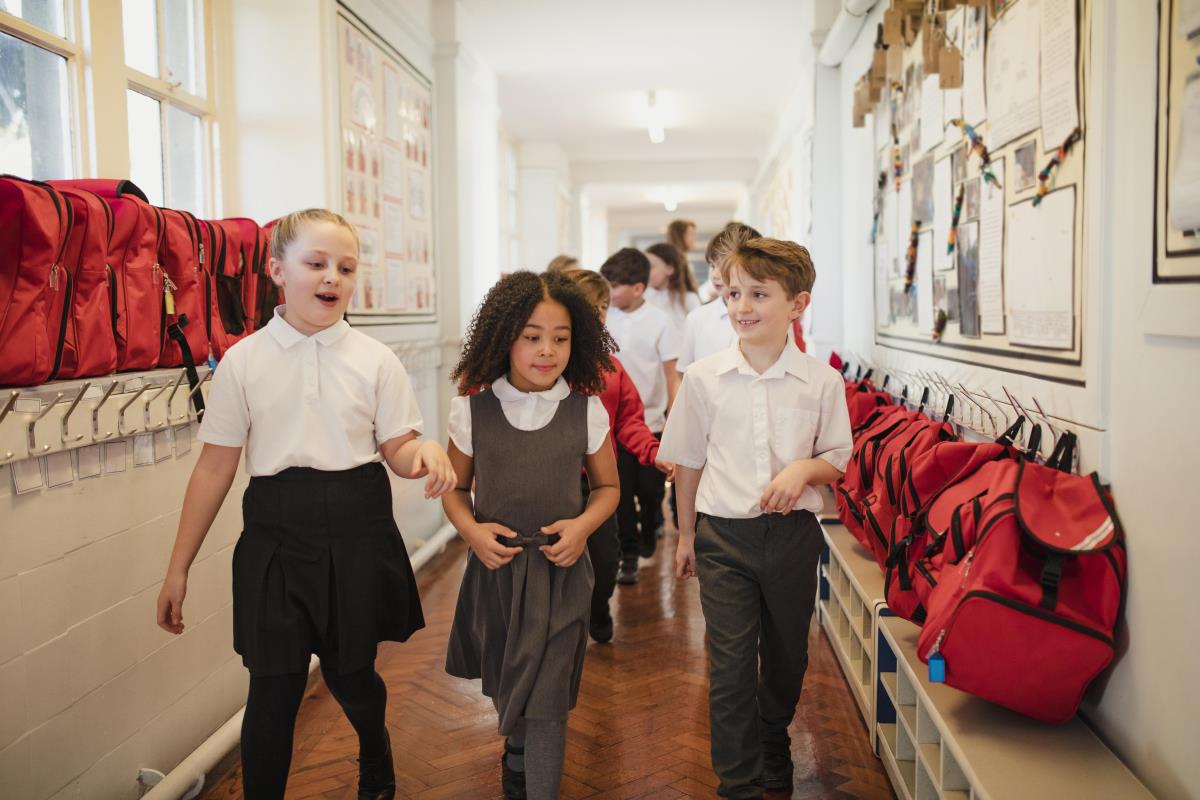Helping Your Child In The Return to School Transition

Our partners at Role Models raise some issues to consider to help ease the transition back from lockdown to school.
- Social Distancing & Your ‘Bubble’
Talk to your child about what these concepts will mean at school and for your travel arrangements. Help your child understand that social distancing simply means making sure we don’t touch others and keep a safe distance between us. For younger children you can remind them to check this by getting them to stretch their arms out like an aeroplane – we shouldn’t be able to touch anyone either side! Talk to them about the idea of a bubble; this is simply your own special group and it’s like a team, you’ll learn together and play together too.
- Prepare them for what might be different (and the same)
Help your child know what to expect in terms of differences in their school setting. The classrooms will almost certainly look different, groups might be smaller and drop off/pick up procedures might have changed so it’s good to discuss what they might expect. Check information from your child’s school on this on their website and in newsletters as they may have shared helpful details or videos on what to expect.
Also take the time to acknowledge that there will also be many things that haven’t changed. Your friends will be there, your teachers, you’ll still have play time and be learning just like you were before.
- Worrying about being behind
Many children, particularly older children may feel anxious about being behind with their learning. Remind your child that everyone else has is in the same boat- we’ve all been learning at home during lockdown. Help them see the progress they’ve made in a non-academic sense over the past few months, maybe they’ve learnt a new skill, developed their resilience, learnt to ride their bike or practised conflict resolution skills!
- Find small ways to give your child control
Your child may be expecting to return to the same school experience they left before the break. It can be helpful to discuss some of the changes so they know what to expect- a smaller group, a different teacher, different lessons etc. Help them see the positives of these new changes too. Look through any information from your child's school (newsletters or website) and share this information with your child.
- Routine & Familiarity
If they haven’t yet started or are in reception with a staggered start it’s worth getting them back into a familiar routine. This could be an earlier bedtime or get up time for the morning, more structured meal times or getting things ready for school such as their uniform. Trying the uniform on is great way for your child to begin to think about their school setting again as is getting used to the school journey before they return.
- Keep the conversation positive
Your child might understandably struggle with the idea of having to snap back into socialising with a group of friends after having spent time away. Acknowledge this is normal and help them prepare through catching up with a friend via the phone or arranging a playdate. You can also simply help them think of three exciting things they want to tell their teacher or friends about their school holiday so they have something ready to say.
- Allow them to talk about their worries
Whilst it’s important to keep the conversation positive, it’s also imperative to let your child vocalise their worries about the return. They may have questions and fears you can help talk through with them. Help them make a worry list or worry box to capture these worries; choosing a set time to sit down and go through these with your child shows them that we can choose when to do our worrying rather than let the worries hijack every moment.
Role Models is an impact driven education provider. We focus on life skills that promote social & emotional wellbeing and dynamic thinking, helping young people to thrive in life. We complement traditional academic education by delivering online and offline courses that develop young peoples’ skills in leadership, confidence, resilience, creative problem solving, collaboration and growth mindset.
Role Models was started because we know that academic success alone is not enough to build tomorrow’s leaders. The World Economic Forum Future of Jobs Report explains how life skills are the most essential skills for the Fourth Industrial Revolution.





